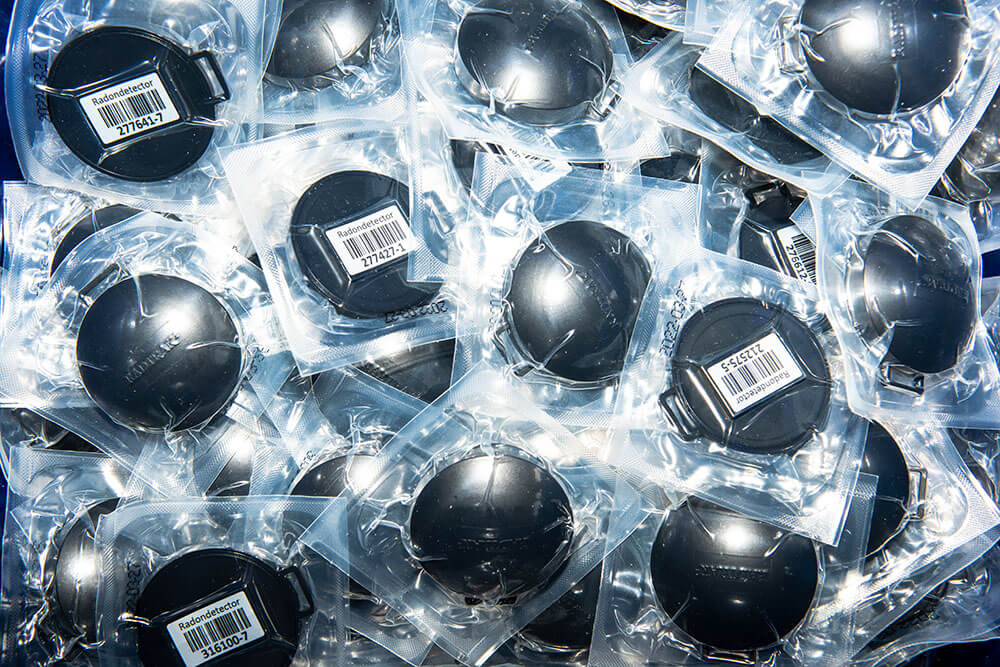Living space
Not only comfortable but also safe living
Procedure Measurements in living spaces
Delivery
Delivery of dosimeters (please select type) with measuring instructions by post.
Exposure of the dosimeter by you
Measure at least 2 separate living rooms with long periods of occupancy (e.g. living room, bedroom, children's room), preferably in the area with ground contact or on the lowest occupied floor.
Recommended: Additional measurement(s) in the basement; in rooms with high radon potential (e.g. cellar with natural floor).
Measuring duration
BAG-approved radon measurement / long-term measurement: minimum measurement period of 90 days during the heating period (October-March). If possible, we recommend an exposure period of 1 year (the longer, the more meaningful the result as an annual average value).
Short-term measurement / indicative radon measurement: minimum measurement duration 2 - 4 weeks.

Return shipment
After the measurement, send the dosimeter back to us:
Ecosens AG
Hammerweg 1
8304 Wallisellen
Measurement report
You will receive a measurement report approx. 3 to 4 weeks after the end of the measurement. Recognized radon measurements are also entered in the FOPH's central database.
Prices long-term measurement
- 2 pcs. CHF 200.00
- 3 pcs. CHF 240.00
- 4 pcs. CHF 280.00
- 5 pcs. CHF 300.00
- additional CHF 60.00/each
- additional buildings per 80.00/building
incl. shipping and evaluation for one building, excl. VAT.
Prices short-term measurement
- 2 pcs. CHF 240.00
- 3 pcs. CHF 300.00
- 4 pcs. CHF 360.00
- 5 pcs. CHF 400.00
- additional CHF 80.00/each
- additional buildings per 80.00/building
incl. shipping and evaluation for one building, excl. VAT.
Your result
You will receive a measurement report with the results and their evaluation in accordance with the FOPH's specifications.
The results of recognized radon measurements are entered into the radon database of the FOPH.
Do you have any questions?
Contact us if you have any questions about radon or radon measurement.
Radon expert
Pia Buser
044 537 09 45
radon-dosimeter@ecosens.ch
When is my house / apartment particularly at risk?
A building is particularly susceptible to high indoor radon concentrations if it
- is located in an area where a high radon concentration is to be expected in many buildings,
- does not have a continuous concrete base plate,
- was built before 1960 and has no modern moisture insulation,
- does not have a basement or there are recreation rooms in the basement,
- there are obvious entry routes for soil air (gaps, cracks, natural stone vaults, open cellar floors, unsealed pipe penetrations, connections to underground cavities).
